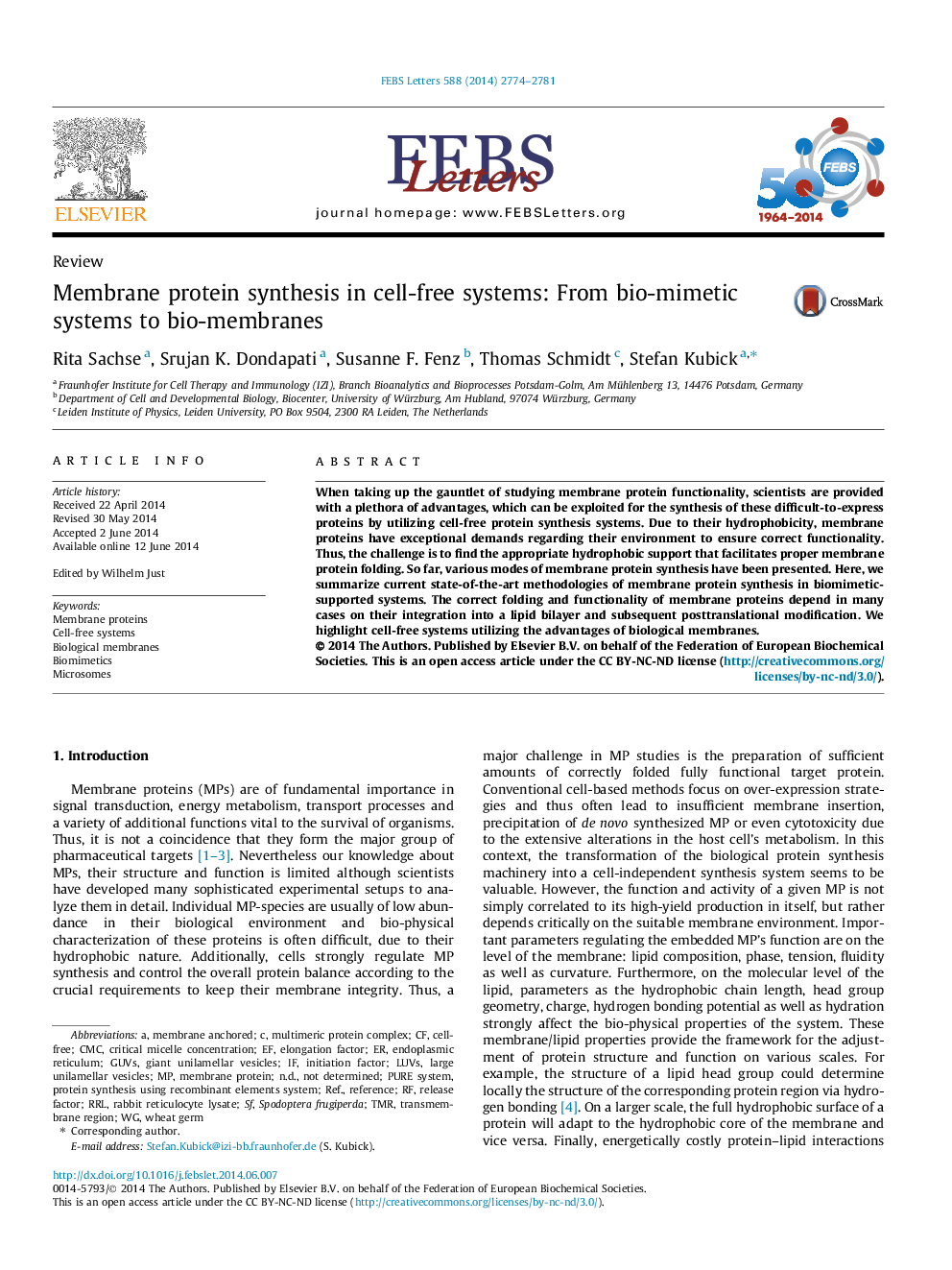| Article ID | Journal | Published Year | Pages | File Type |
|---|---|---|---|---|
| 10870136 | FEBS Letters | 2014 | 8 Pages |
Abstract
When taking up the gauntlet of studying membrane protein functionality, scientists are provided with a plethora of advantages, which can be exploited for the synthesis of these difficult-to-express proteins by utilizing cell-free protein synthesis systems. Due to their hydrophobicity, membrane proteins have exceptional demands regarding their environment to ensure correct functionality. Thus, the challenge is to find the appropriate hydrophobic support that facilitates proper membrane protein folding. So far, various modes of membrane protein synthesis have been presented. Here, we summarize current state-of-the-art methodologies of membrane protein synthesis in biomimetic-supported systems. The correct folding and functionality of membrane proteins depend in many cases on their integration into a lipid bilayer and subsequent posttranslational modification. We highlight cell-free systems utilizing the advantages of biological membranes.
Keywords
CMCRRLGUVsn.d.LUVsSpodoptera frugiperdaBiomimeticsTMRCell-freelarge unilamellar vesiclesWheat germrabbit reticulocyte lysatePURE systemCell-free systemsendoplasmic reticulumelongation factor Initiation factorRelease factorBiological membranescritical micelle concentrationGiant unilamellar vesiclesreferenceRef.not determinedTransmembrane regionMicrosomesMembrane proteinsMembrane protein
Related Topics
Life Sciences
Agricultural and Biological Sciences
Plant Science
Authors
Rita Sachse, Srujan K. Dondapati, Susanne F. Fenz, Thomas Schmidt, Stefan Kubick,
